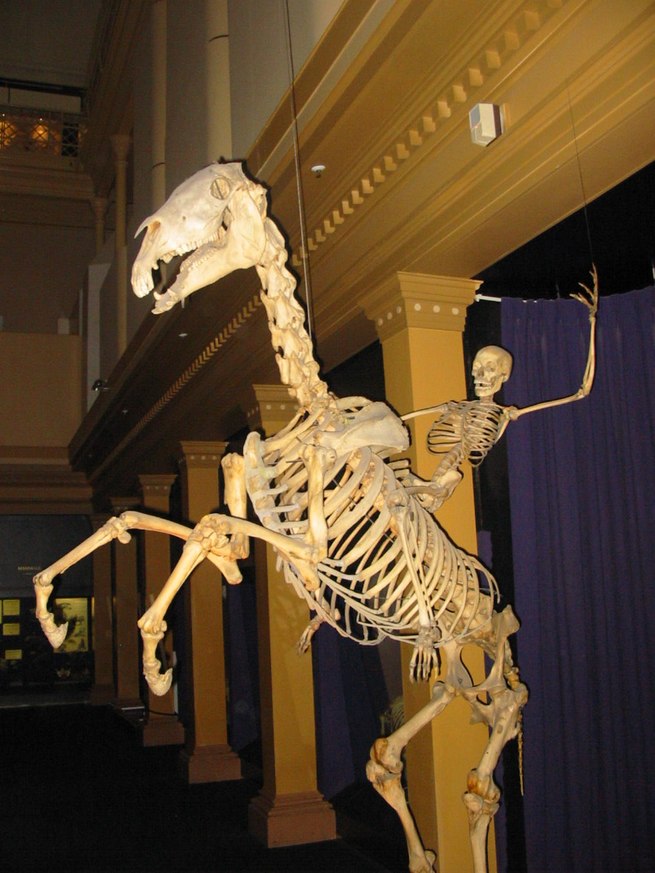
-
Skeletal
The skeleton is the body part that forms the supporting structure of an organism. There are several different skeletal types: the exoskeleton, which is the stable outer shell of an organism, the endoskeleton, which forms the support structure inside the body, the hydroskeleton, and the cytoskeleton. The term comes from Greek σκελετός(skeletós), meaning ‘dried up’.
-
Skeleton
The skeleton is the body part that forms the supporting structure of an organism. There are several different skeletal types: the exoskeleton, which is the stable outer shell of an organism, the endoskeleton, which forms the support structure inside the body, the hydroskeleton, and the cytoskeleton. The term comes from Greek σκελετός(skeletós), meaning ‘dried up’.
-
Skeletal (adjective)
of, or relating to the skeleton
-
Skeletal (adjective)
haggard, cadaverous, emaciated or gaunt
-
Skeleton (noun)
The system that provides support to an organism, internal and made up of bones and cartilage in vertebrates, external in some other animals.
-
Skeleton (noun)
An anthropomorphic representation of a skeleton.
“She dressed up as a skeleton for Halloween.”
-
Skeleton (noun)
A very thin person.
“She lost so much weight while she was ill that she became a skeleton.”
-
Skeleton (noun)
The central core of something that gives shape to the entire structure.
“The skeleton of the organisation is essentially the same as it was ten years ago, but many new faces have come and gone.”
-
Skeleton (noun)
A frame that provides support to a building or other construction.
-
Skeleton (noun)
A client-helper procedure that communicates with a stub.
“In remote method invocation, the client helper is a ‘stub’ and the service helper is a ‘skeleton’.”
-
Skeleton (noun)
The vertices and edges of a polyhedron, taken collectively.
-
Skeleton (noun)
A type of tobogganing in which competitors lie face down, and descend head first (compare luge).
-
Skeleton (verb)
to reduce to a skeleton; to skin; to skeletonize
-
Skeleton (verb)
to minimize
Skeletal Illustrations






